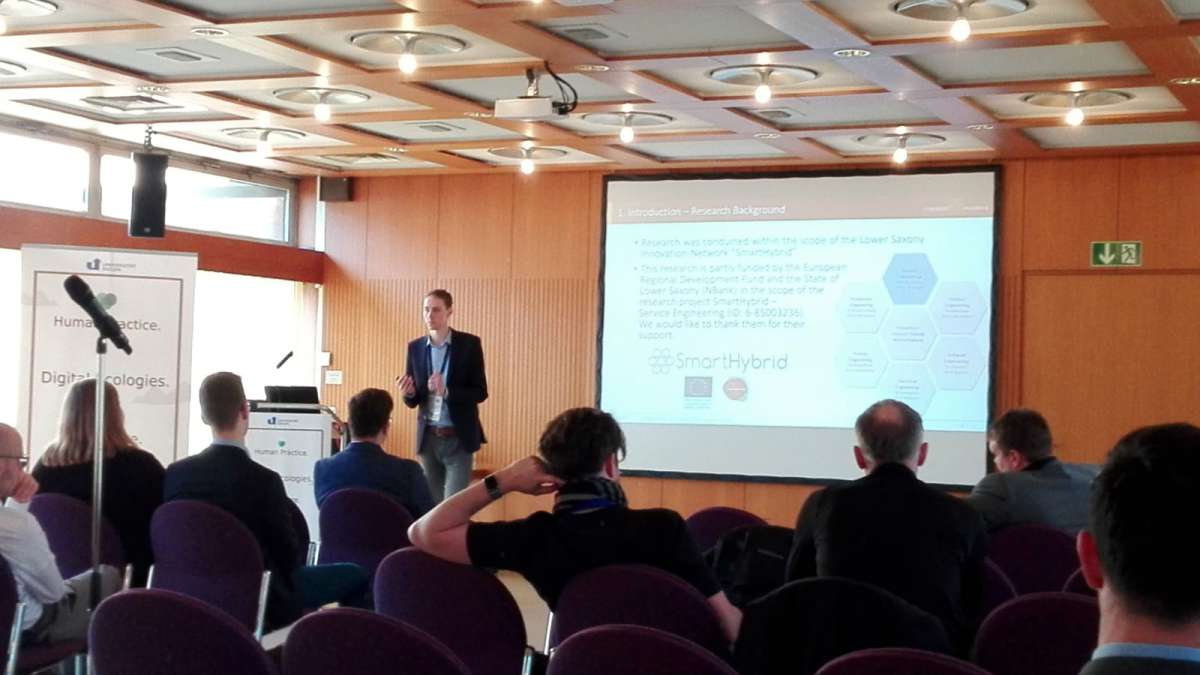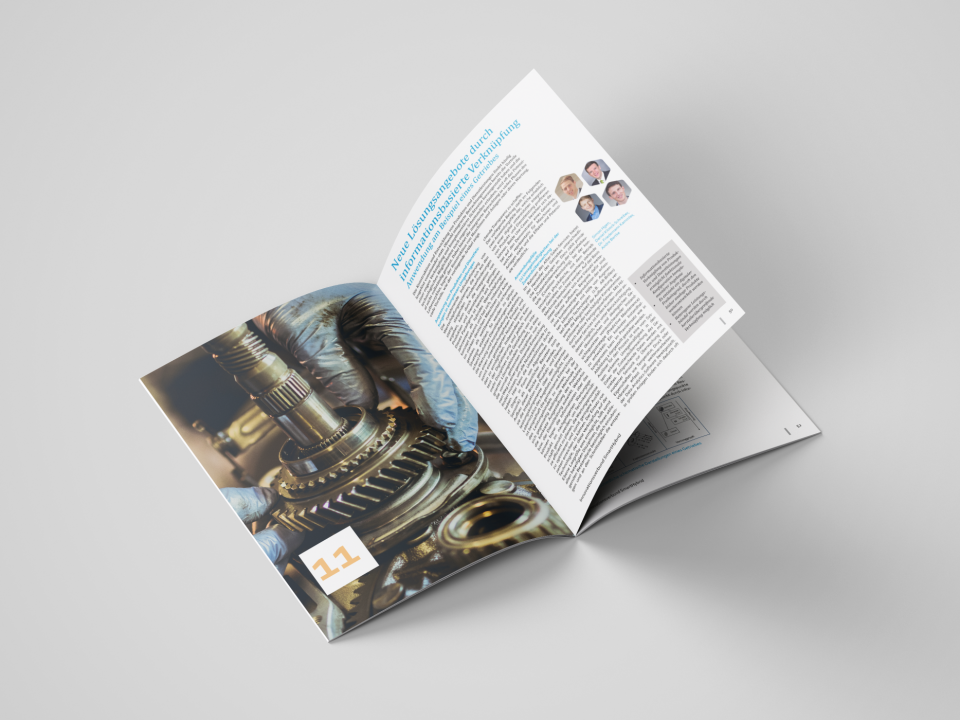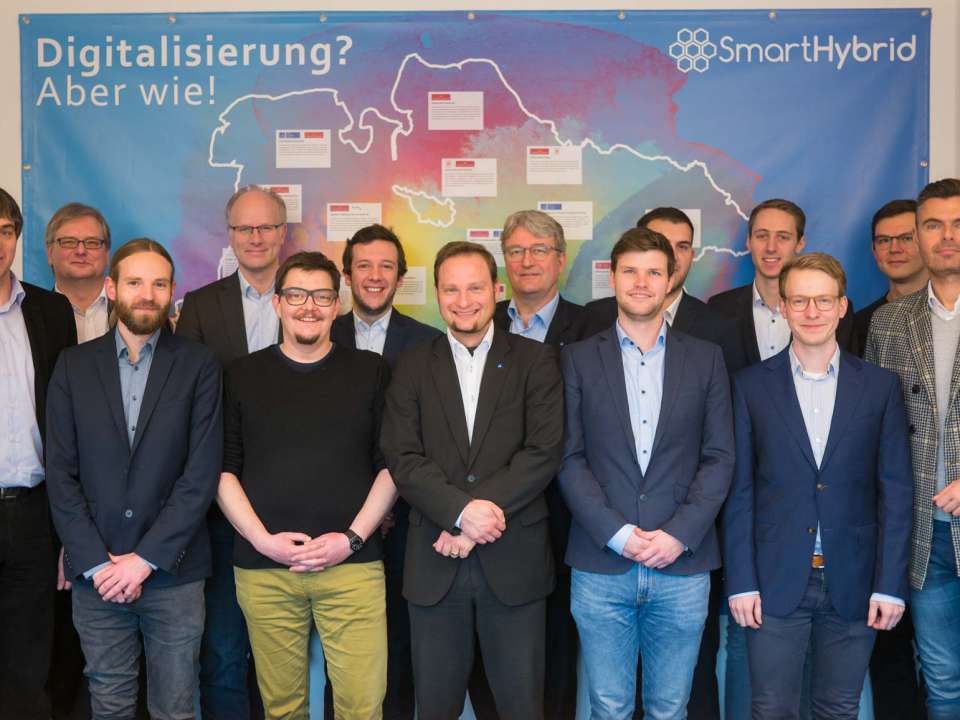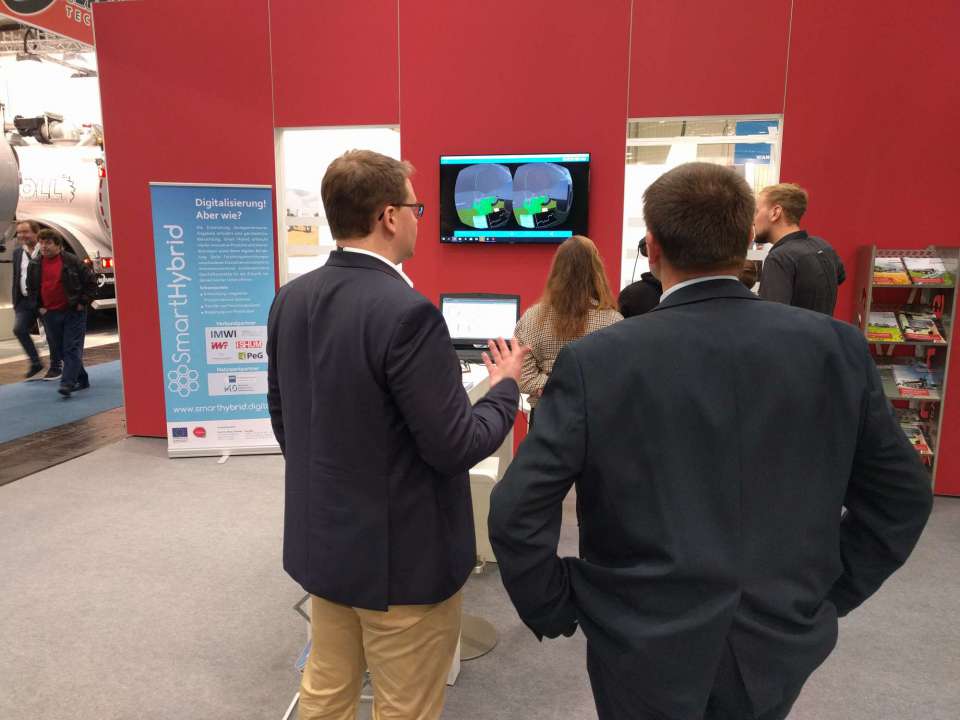Forschungsbeiträge auf der 14. Internationalen Tagung Wirtschaftsinformatik

Forschungsbeitrag in der HMD Praxis der Wirtschaftsinformatik
27. Februar 2019
Ringvorlesung „Digitaler Wandel in Unternehmen und Verwaltungen“ an der Universität Hildesheim
16. April 2019Aus den Teilprojekten „Service Engineering“ (Uni Osnabrück) und „Process Engineering“ (Uni Hildesheim) sind Forschungsbeiträge auf der 14. Internationalen Tagung Wirtschaftinformatik veröffentlich und präsentiert worden, die vom 23. – 27.02.2019 in Siegen stattgefunden hat. Im ersten Beitrag (Uni Osnabrück) ging es um das Spannungsfeld zwischen Erwartungen und Lösungsansätzen bei Smart Services, der zweite (Uni Hildesheim) beschäftigt sich mit der Erweiterung von Prozessmodellierungstechniken .
1) Expectations vs. Reality – Benefits of Smart Services in the Field of Tension between Industry and Science
Die Digitalisierung von Dienstleistungen wird häufig mit dem Begriff der „Smart Services“ betitelt und erfreuen sich in Wissenschaft und Praxis zunehmend an Bekanntheit. Dies führt jedoch zu einem Spannungsfeld zwischen Erwartungen an die Möglichkeiten und die tatsächlich existierenen Lösungen. Der Beitrag untersucht dieses Spannungsfeld und betrachtet dabei inbesondere positiv wahrgenommene Mehrwerte von Smart Services.
Abstract:
The term “Smart Service” gains increased interest in science and practice since it promises to significantly improve a company’s value offering. However, its publicity might lead to overdrawn expectations, especially between practitioners and scientists working in this field. Therefore, we conduct a mixed-method study comparing the expected benefits of Smart Services in science and industry to help identify and close occurring gaps. The study consists of a literature review for the scientific point of view and a survey among practitioners to capture the benefits of Smart Services in both groups. The results predominantly reveal the same vision of both groups for Smart Services, but indicate slight but fundamental differences.
2) How Software Promotes the Integration of Sustainability in Business Process Management
Aufbauend auf der Studie zur Erweiterung von Prozessmodellierungstechniken für die Integration von ökonomischen, ökologischen und sozialen Nachhaltigkeitsaspekten (Schoormann et al. 2017), untersucht der Beitrag die IT-Unterstützung dieser Integrationsansätze.
Abstract:
Business research and practice increasingly focus on integrating sustainability in organizations. To contribute to rising challenges related to the society and the environment, sustainability-driven concepts (e.g., environmental-friendly) have to be implemented in the daily business routines, and thus, need to be considered during the design of business processes in any organization. In this study, we conceptualize the field of Green Business Process Management (BPM) and use the derived concepts to classify supporting modelling tools and concrete software features. While our study indicates a lack of realization of the ecological and social sustainability in particular and a gap in supporting users during the redesign phase, there are software features that can potentially serve as a starting point to further incorporate sustainability in the design, implementation, and controlling of business processes.
>> Beide Beiträge sind als Open Access im Tagungsband der WI 2019 zu finden




